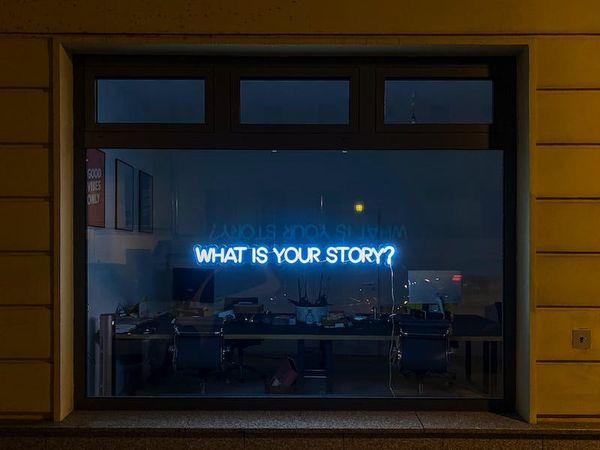How expectations influence your motivation

Welcome back to the Effortless Action Newsletter! Every Wednesday, I share findings from a wide range of disciplines to better understand “What gets us to take action?”
Last week, I thought I was going to blow up.
Not in the physical sense, or eating too much food, but on Twitter.
I was happy with last week’s newsletter, and thought it’d be the perfect thread to post on Twitter. I shared it with my Twitter friends, posted the link to it on a couple of “what are you working on” Tweets, and set my phone down to work on something else, optimistically, yet arrogantly, painting the scene of someone who picks up their phone to thousands of notifications and hundreds of new followers.
Normally, my content on Twitter gets a handful of likes, maybe a couple of comments. Can you guess how this thread was received?
I got a single like.
The point here isn’t for me to complain about my content woes, rather the expectation I had of this piece of content. It didn’t deserve more than one like. I put too many links in it, and I haven’t been respecting the almighty “algorithm.” Of course it flopped.
If I never would’ve expected anything from the tweet, it would’ve just landed like all of my other newsletter promotion tweets with no hard feelings. Instead, the unmet expectation ended up being a huge blow to my motivation.
In fact, it was one of the straws that made me strongly consider abandoning consistency with my writing and just focusing on my other side project. Luckily, I’ve got awesome people like you in my corner to keep me going.
Back to expectations, I have two more topics to touch on: first a story, then some science.
What even are your expectations?
I’ve been talking with my therapist a lot recently about how I’m not happy with my work.
For me, it’s extremely difficult for me to be satisfied with what I produce — from my day job and content like this to Christmas cookies.

So, my therapist asked me, “how would you make the transition from your current work to your ideal work?”
And I had no idea how to respond. Not because I didn’t know the roadmap, or the next steps, but because I had no idea what my ideal work even looks like. I’ll stop burying the lede:
Oftentimes, we don’t have a clear picture of what our expectations are. So how the hell are we supposed to hit them?
We act as our own bosses that say they want something done, but then reprimand you when you hand in the project, saying you didn’t do it right, when they never gave you a prompt to begin with. It’s infuriating!
And if we do have clear expectations for ourselves, what are they influenced by? Most of the time, we set our expectations based on what we see from other people.
But there’s a disconnect.
In the digital age, social media creates facades. People front on social media. Even people like me with good intentions, you don’t get the full picture of my emotions, the stress of life and balancing projects, you just see the weekly publishing. Even more so for the hustle-bros who rent Lambos with daddy’s money and talk about how you just need to work harder. Meanwhile, you’re sitting there beating yourself up because “if you just worked harder you could achieve your goals.”
Rant aside, I implore you to take a look at your expectations. Are they clear? Are they controllable? Are they influenced by others, or do they take into account your personal struggles? The new year is a great time to reflect on these expectations for yourself.
If big expectations are actively moving you in the right direction, then great. If huge goals and expectations are paralyzing you, then take another look. Make them serve you.
Dopamine Reward Prediction Error
Dopamine is the leading driver of drive and motivation. It’s a neurotransmitter that is tossed from one neuron to the next to say “YES let’s go after this thing!”
But there’s something really interesting about dopamine. The amount of drive and motivation we feel isn’t just based on how much dopamine is in our brain, but rather that amount relative to what it is in the past.
For example, if you take two people with the same amount of dopamine coursing through their brains, they’ll have different levels of motivation based on how much dopamine they’re used to. If one of them is an addict, their levels of motivation are going a lot different than the other person.
It’s like if you take two people and give them each a $1,000 paycheck this week. That’d be amazing for the person who only gets $100 a week, but awful for the person who is used to $5,000.
So how does this work with expectations?
Dopamine Reward Prediction Error happens when we believe that a reward will give us a certain level of dopamine, but it doesn’t. This lowers our baseline level of dopamine (what we normally are used to), meaning that we’re starting from a lower motivational point than when we started.
So not only do we feel bad because we didn’t hit our expectations, but we also start from a lower motivational point the next time we try something.
This was especially true with what happened to me last week. I felt no motivation to work on anything, and was tempted to not send a newsletter this week. But I flipped the script, found inspiration from those struggles, and decided to write about it today.
Thanks for reading!
Hey you! Thanks for reading to the bottom!
If you enjoyed this, there’s much more to come. I’d love to hear your feedback, you can simply reply to this email or click on one of those little “Did you enjoy this issue?” responses right below the next paragraph.
If you’re reading this through The Sample or on the web, and you’d like to get more insights like this in your inbox every week, you can sign up at the top of the page here! Also, go follow me on Twitter if that’s what you’re into. 😁
If you enjoyed this edition in particular, I’d be honored if you share this on Twitter, or forward it to a friend!
I hope you have a wonderful day!



